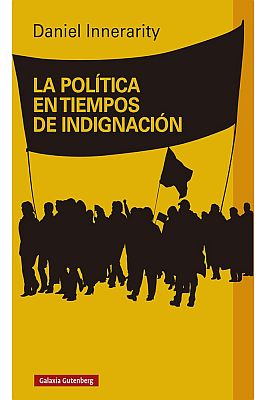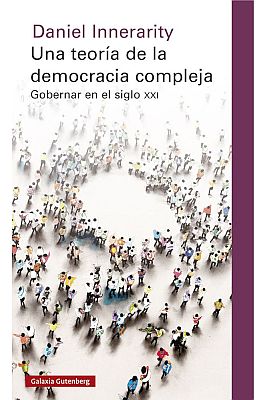What will the world be like after the crisis?
- Dossier
- May 20
- 8 mins

The coronavirus crisis will not mean the end of globalisation or of European integration, but an incentive to configure them differently. In the wake of crises there are lessons learned, but also backsliding and inept reactions, and drawing conclusions is especially premature. Nevertheless, it is sensed that this extreme situation will strengthen the tendency towards a world of common goods.
When we ask ourselves what the world will be like after the coronavirus crisis, what will change and to what extent, it is hard to separate the description from the prescription. It is never easy, and less so in moments like these, to distinguish between what we believe will happen and what we wish would happen, and to guarantee that the analysis with claims of neutrality does not mix with what we think should happen. Objectivity, normativity, and desire overlap even more at times of upheaval and confusion. On top of that, we are not talking as much about fortune-telling as about configuration. Modern societies are not dedicated to predicting a future that will inevitably come about, but rather endeavour to shape the desirable future. Furthermore, there are also our free decisions, as individual subjects and as society, which turn any prediction into a weak bet.
All this occurs at a time when the great deterministic stories have lost credibility and the world is fragmented in turmoil that gives rise to different and even contradictory movements. In the wake of crises there are lessons learned, but also backsliding, inept reactions, and even incidents of collective stupidity since our intuition tilts us in the wrong direction. Is it possible to discover an outcome of this upheaval, a tendency more powerful than small-scale tensions, a direction that can be distinguished from all this disorder? We could try to identify what makes sense, the logic of things, the systemic evolution of societies. We would therefore have to start by distinguishing the momentary reactions of major tendencies, because immediate responses are one thing and slow responses are another: in the short term, what we see is the State as the main player – cheap Keynesian economics, closure of borders, military authority and obedience to experts –; in the long term, perhaps the opposite. Like everything that is not intuitive and when it is contended that things are not what they seem, we owe ourselves an explanation.
Borders of inequality
In my opinion, the current coronavirus crisis is not as novel as it seems, neither on account of its nature nor the strategies to combat it. There is a certain archaism in the procedures, some health strategies that closely resemble those used in the old pandemics and afford little consideration to environmental hazards. The return of limits is provisional as a prophylactic measure (it does not heal, but it partially halts transmission and it is not socially and economically bearable for longer than a limited time). Furthermore, state boundaries are not the most relevant; the most meaningful boundaries are those of our homes and those of inland tourism, and those of inequality, which separate more than any demarcation of physical space.
The return of the State is illusory and momentary. This crisis will not mean the end of globalisation or European integration, but an incentive to configure them differently. The virus seems to have paralysed the European idea; member states close their borders, limit the freedoms of citizens and redo politics on their own, largely because the powers of the European Union in the domain of health are very limited. The criticism of Europe’s absence expresses the extent to which we have assimilated that the EU is a decisive space when it comes to delivering a solution to the crisis. In the 2008 crisis, Europe did not seem absent, but rather overly intrusive. The recent interventions of some leaders of European states that challenged solidarity do not represent European values but quite the contrary. Our reaction should therefore not be to call the idea of Europe into question but to regret the extent to which some people have not assimilated it sufficiently.
States may be tempted to maintain this closure, but migration policies continue to call for international cooperation: customs do not stop cyber attacks, and communications and financial flows do not stop at any border, let alone climate change, the most global and symmetrical threat in the face of which the State represents a completely inadequate scale of management. The battle of knowledge is also put forward as a decisive measure beyond the confines of the national state. The discovery and production of vaccines (despite races for competition and prestige) call for transnational collaboration. Scientific communities have long since ceased to agree with national boundaries.
Although some countries try to exploit the disaster to consolidate the prerogatives that the state of exception has granted them, state power is not going to regain its time of glory except momentarily, and we will continue to advance towards an unprecedented form of shared management of common goods. The returning State does not do so permanently; it does not have the economic resources to extend the exception over time, it shares its authority with the other member states against a backdrop of global interdependence and it obtains the knowledge of a civil society that it does not control hierarchically. This is well understood if we compare the health crisis with the ecological crisis. In the fight against the coronavirus, the Administration has taken on the classic pedagogical role and within national borders. As Bruno Latour warned, in the case of the ecological transition, the relationship is exactly the other way round: it is the State that must learn to manage a multi-faceted and unconstrained nation with multi-scale scales and interdependently with others, unable to dictate measures from above. While in the health crisis the State reminds people of the old hygiene lessons on hand washing and coughing, in the ecological transition it is the State that is in a learning situation in a scenario they are unfamiliar with.
This crisis, far from curbing it, will strengthen the tendency towards a world of common goods.
A world of common goods
In a process of such complexity and in the midst of developments that have just begun, drawing conclusions is especially premature. I dare, however, to venture that this crisis, far from curbing it, will strengthen the tendency towards a world of common goods; therefore, towards a more integrated world in terms of regulation and institution-wise. Despite the setbacks and misgivings, it is time for what is common. Awareness of the goods and threats we share shows once again that these collective goods and ills exceed the capacity of states. We are less and less immersed in a world of juxtaposed sovereign states and more in a world of connected and interdependent spaces.
Major political issues have been dissociated almost completely from the framework defined by states in a three-fold dimension: the generation of the problem (who or what sort of behaviour causes a certain problem), the impact of the problem (who suffers what kind of negative effects) and the solution of the problem (who is responsible for its resolution and in what way). The origin, impact and solution of certain problems do not correspond to the limits of the traditional unity represented by state-organised societies. All this defines a picture of interdependence or mutual dependence that implies a shared vulnerability. States and the sovereign state system have great difficulties in promoting stability, security, prosperity, and other specifically common goods.
The idea that we had of public goods, linked thus far with a state sovereignty that would be responsible for guaranteeing them, is changing.
The idea that we had of public goods, linked thus far with a state sovereignty that would be responsible for guaranteeing them, is changing. We are gradually becoming aware that these are goods that are not divisible between the states, as is the case with those that concern the environment, security, economic stability, and health; those that do not lend themselves to sovereign management without triggering serious adverse effects. Global crises or global risks do not only affect the most directly concerned national communities but humanity as a whole because of their cascading implications or their spill-over effects. Insofar as they are humanity’s common goods, public goods cease to be only sovereign goods.
Fundamental decisions are no longer adopted at the national level, from where often only the add-on is decided. In commercial, monetary, fiscal or social matters, decisions have become deeply interdependent, which launches a form of governance that implies not only a strengthening of intergovernmental coordination, but also the constitution of spaces for mobilisation and representation of interests, discussion and public debate that transcend national territories and sovereign rationales.
***
As I write this, on 3 April 2020, the coronavirus crisis is in a phase that I still don’t dare to qualify, since it’s a matter that will only correspond to future historians. This quote by the Irish poet Seamus Heaney comes to mind: “If we winter this one out, we can summer anywhere”. I still don’t know what season of the year we are really in, nor if we can use this quote to urge us to resist in the middle of the crossing or like someone relating a past deed.
Recommended publications
 La política en tiempos de indignaciónGalaxia Gutenberg, 2015
La política en tiempos de indignaciónGalaxia Gutenberg, 2015 Una teoría de la democracia complejaGobernar en el siglo XXI. Galaxia Gutenberg, 2019
Una teoría de la democracia complejaGobernar en el siglo XXI. Galaxia Gutenberg, 2019
The newsletter
Subscribe to our newsletter to keep up to date with Barcelona Metròpolis' new developments




